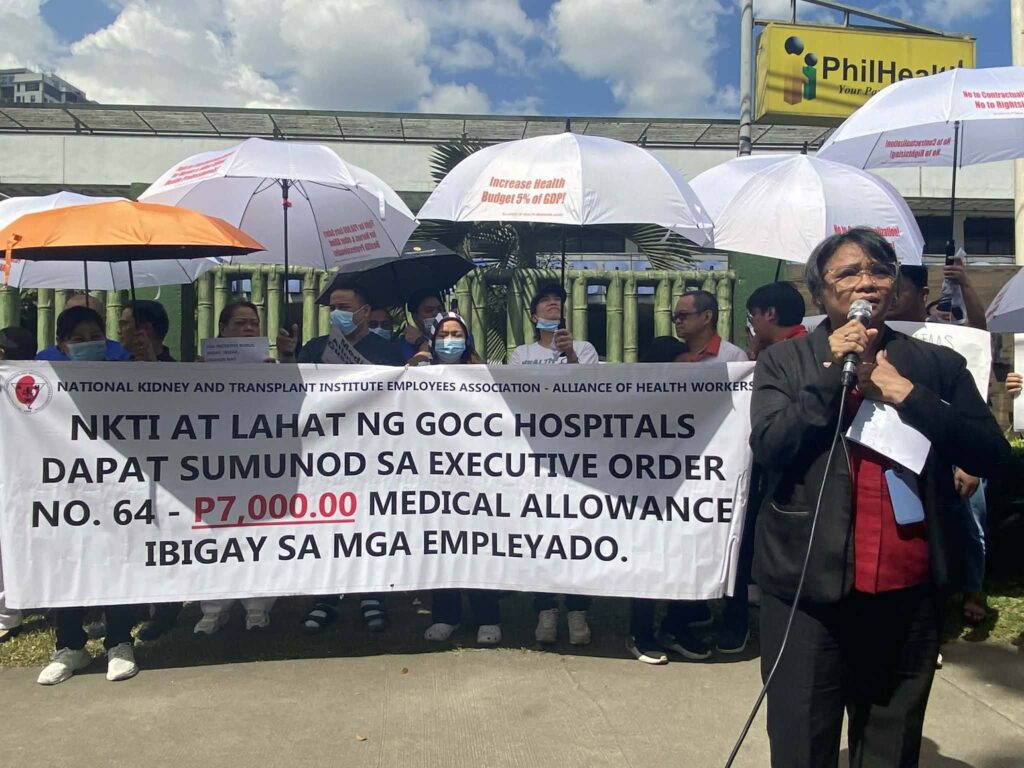📷Makabayan senatorial bet Nars Alyn Andamo
PhilHealth is now challenged to deliver health services using its ₱600-billion reserve funds. This is brought about by a bicameral approval to defund PhilHealth of its ₱74-billion subsidy in the 2025 budget. Senate Finance Committee Chairperson Mary Grace Natividad S. Poe said that the subsidy for PhilHealth will be used to fund departments that need it more. Defunding PhilHealth is bad for people’s health and well-being.
The bicameral committee approved the budget of the Office of the Vice President. It is retained at ₱733. million, even as it is under fire for the controversial use of Confidential and Intelligence Funds. It topped up the budget of the Department of Public Works and Highways, the Department of National Defense, the Department of National Defense, and the Office of the President.
The bicameral committee decreased the budget of social service agencies such as the Department of Health, Department of Social Welfare and Development, Department of Education, Department of Agriculture, and the Department of Labor and Unemployment. The bicameral report also reveals huge budget cuts in specialty government-owned and controlled hospitals namely the Philippine Heart Center, Lung Center of the Philippines, National Kidney and Transplant Institute, and the Philippine Children’s Medical Center.
Defunding PhilHealth deprives Filipinos of much-needed health care. Although PhilHealth, as an insurance scheme does not resolve health care inaccessibility, the beneficiaries still rely on it for mandated health services. Meanwhile, PhilHealth is swamped with anomalies and inefficient and incompetent officials.
The 2025 General Appropriation Bill (GAB) containing the ₱6.352 trillion national budget for next year awaits only the signing of President Marcos before becoming law after the Senate and the House of Representatives ratified the measure on Dec. 11, 2024.
Health is a basic human right that should be guaranteed by the State. It should focus on addressing systemic issues that bring about ill health. Under the current commercialized and privatized healthcare system, services and medicines come with a price tag. Out-of-pocket expenses reach a high 45 percent. There is a widening gap between the rich and the poor in terms of health outcomes where only the affluent can afford health care, leaving the majority without adequate health care.
To remedy the deteriorating health situation, there is a need for free, comprehensive, and quality healthcare in public hospitals and other healthcare facilities. Increase the health budget to five percent of the gross domestic product. Directly fund public health care facilities nationwide. The public health care system should be strengthened. Corruption in health should be stopped.#




